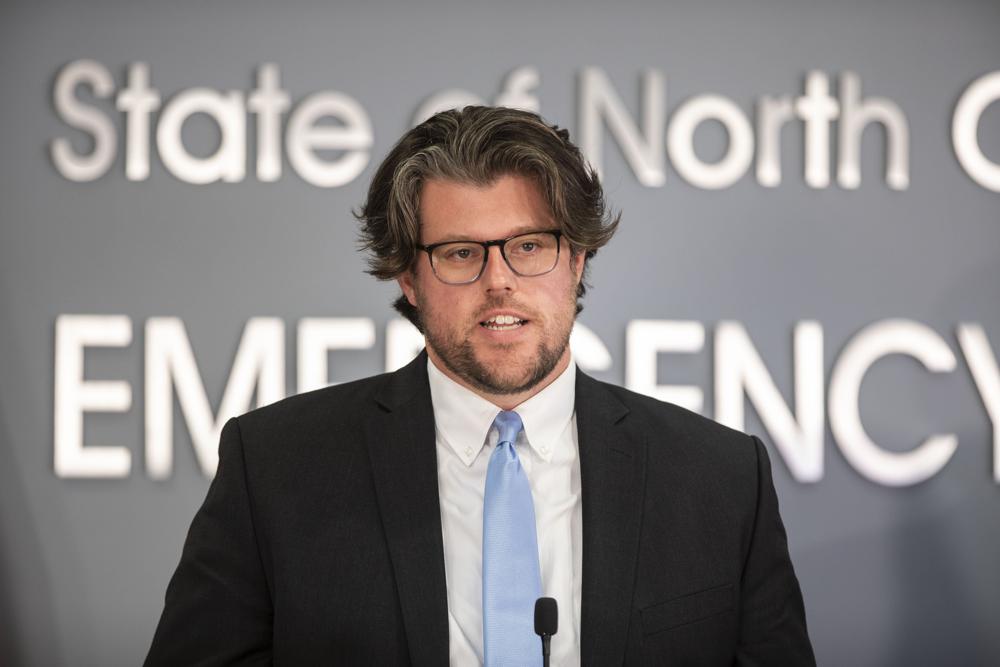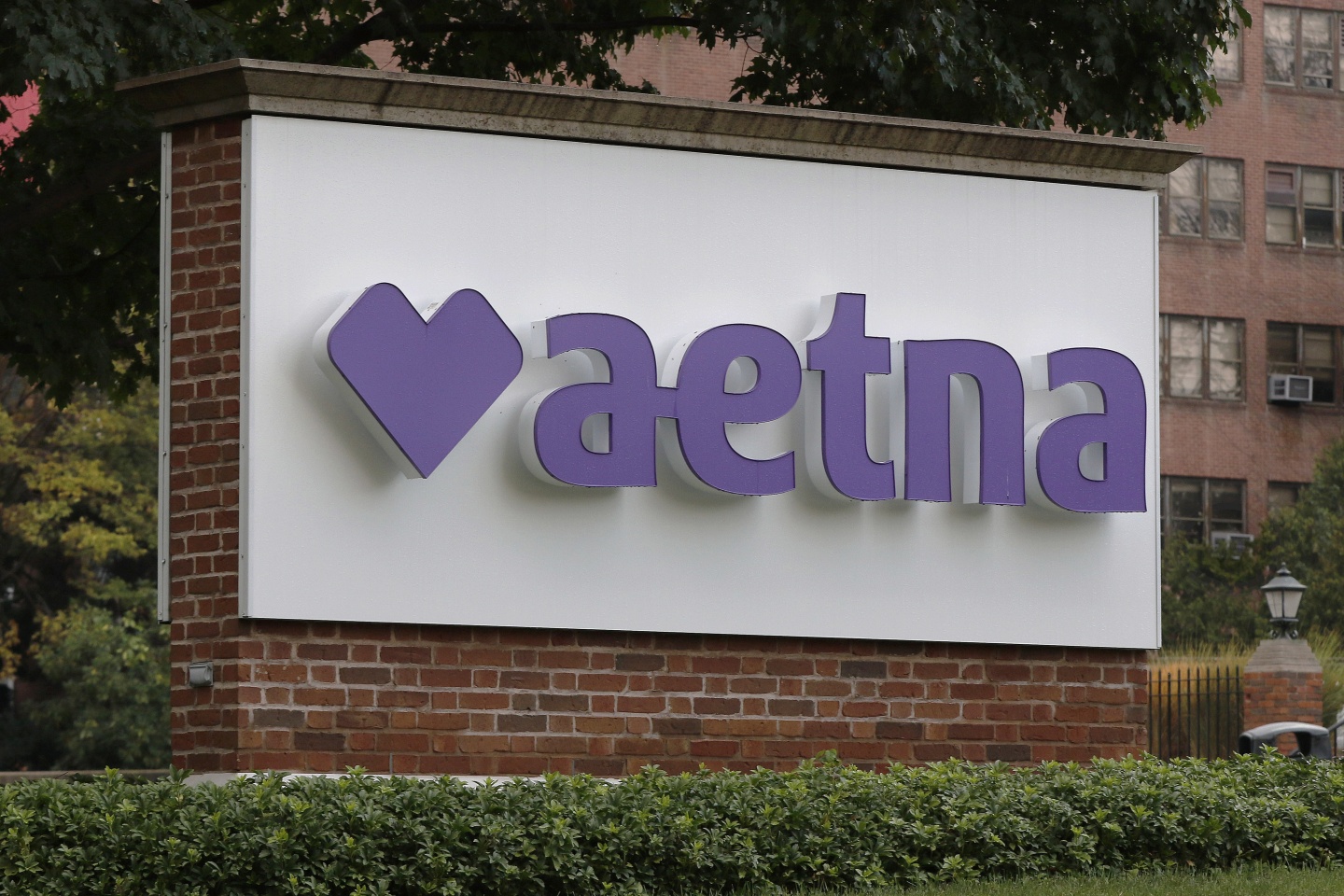Cameron Credle has been battling familial hypercholesterolemia (FH) for more than 25 years, after he found out he had the disorder when he was three years old. And while his day-to-day life is regular—he goes to work, exercises and spends time with family—his cholesterol isn’t. FH is a genetic cholesterol disorder that keeps his body from getting rid of low-density lipoproteins, also known as the bad cholesterol.
There are treatments readily available, but the one Credle was using only reduced his cholesterol by 50 percent, and he needed the treatment to reduce it even more. So when a new medication came out, called a PCSK9 inhibitor, it seemed perfect. Except, he said his insurance won’t cover it.
“This has been something I didn’t know that I would see in my lifetime,” Credle said. “This is something that gets it down to that last 50 percent to put me in a normal range. We’ve just had a heck of a time getting my insurance company to cover it, and I have really good coverage.”
William Cromwell is Credle’s doctor – a lipidologist in Raleigh. Cromwell said even though Credle has a typical insurance plan, it may not be that specific company’s fault. Cromwell has been going through a lengthy prior authorization process to get the company to cover the medicine. And he said that process isn’t the same for any two insurance companies.
“The process from the time I write the prescription to the time that we are able to get product for our patients consists of layers and layers of bureaucracy with individuals who are poorly informed and are able to kick this thing out for any number of reasons that have no basis in fact,” Cromwell said.
He said Credle’s case isn’t the only one like this he’s seen, and that some insurance companies don’t even know they can cover medication for FH, because it isn’t in their database of treatable diseases, even though it’s common.
“It’s a very common condition but it’s not often thought of when you’re thinking about common medical problems,” he said. “It occurs in we think in one in every 250 kids born in the US.”
Cromwell said after talking to numerous personnel with the insurance company, there are hopes that the PCSK9 inhibitor will finally be covered.
“We believe we have been successful,” he said. “The medical director that I most recently spoke to approved Cameron’s prescription for the second PCSK9, but even now having achieved that, it appears the company has not gotten in touch with Cameron with detail regarding his approval and how he’s going to get the medication.”
Credle said he and Cromwell are going to keep fighting for coverage of medications like PCSK9, because he’s not the only one affected by FH. He said while it’s important for him to get this medication, it’s important for others in need to have access to it too.
“There’s a solution out there,” he said. “It exists. If we figure this out and go through the right avenues, figure out the right solutions – legislative or what they may be – then we can all benefit from it.”
Credle says he’s still waiting to find out from his insurance company or from the supplier of the PCSK9 inhibitor whether his insurance is going to cover the medication.
Related Stories
‹

Mental Health, Infant Mortality and Environmental Racism: Takeaways From Orange County's Health Assessment DataEvery four years, the Orange County Health Department embarks on an intensive effort to gather wide-ranging, local health information in its Community Health Assessment, which happened in 2023. One month ago, the health department shared those results and data with residents. The health department published its public copies of the 2023 assessment after surveys, focus […]

Medicare and Social Security Go-Broke Dates Are Pushed Back in a ‘Measure of Good News’The go-broke dates for Medicare and Social Security have been pushed back as an improving economy has changed projected depletion dates.

Medicaid Expansion Won't Begin in North Carolina on Oct. 1 Because There's Still No Final BudgetWritten by GARY D. ROBERTSON With the state budget’s passage now two months late, North Carolina Gov. Roy Cooper’s administration announced Monday that it can’t start the implementation of Medicaid expansion to hundreds of thousands of low-income adults in the early fall as it had wanted. State Health and Human Services Secretary Kody Kinsley said that […]

North Carolina Governor Signs Bill Allowing Blue Cross to RestructureWritten by HANNAH SCHOENBAUM North Carolina Gov. Roy Cooper signed into law on Saturday a bill allowing the state’s leading health insurance provider to reorganize despite pleas from other executive officials to block the proposal. The new law, which passed the GOP-controlled General Assembly with overwhelming bipartisan support, permits Blue Cross and Blue Shield of North Carolina […]

N. Carolina Governor Signs Medicaid Expansion Bill Into LawWritten by GARY D. ROBERTSON North Carolina Gov. Roy Cooper on Monday signed a Medicaid expansion law that was a decade in the making and gives the Democrat a legacy-setting victory, although one significant hurdle remains before coverage can be implemented, thanks to a Republican-backed provision. At an Executive Mansion ceremony attended by hundreds, Cooper […]

Lawyer Defends North Carolina’s Transgender Care ExclusionsWritten by HANNAH SCHOENBAUM A lawyer representing the leaders of North Carolina’s state employee health plan defended its exclusion of gender-affirming treatments on Wednesday before a federal appeals court, facing a barrage of criticisms from its chief judge. State Treasurer Dale Folwell and the State Health Plan’s executive administrator are seeking to overturn a trial court […]

Aetna Picked To Operate North Carolina Employee Health PlanWritten by GARY D. ROBERTSON Insurance giant Aetna will administer North Carolina’s health coverage plan for state government employees, teachers, retirees and their family members starting in 2025, the State Treasurer’s Office announced Wednesday. The company won the contract and will replace Blue Cross and Blue Shield of North Carolina, which the State Health Plan said has […]
![]()
Hurricane Ian Floods Leave Mess, Insurance Questions BehindWritten by REBECCA SANTANA and MICHAEL PHILLIS Christine Barrett was inside her family’s North Port home during Hurricane Ian when one of her children started yelling that water was coming up from the shower. Then it started coming in from outside the house. Eventually the family was forced to climb on top of their kitchen […]

Chatham County Community Assessment Highlights Health Inequities, PrioritiesTo help get a snapshot of its community’s wellbeing and issues, the Chatham County Health Department assembled an extensive survey and report. Published earlier this month, the 2021 Chatham County Community Assessment aims to understand the needs of its residents while providing a path for organizations to take action. Maia Fulton-Black, a population health data […]

NC Retiree Health Insurance Case Left Unsettled by Top CourtWritten by GARY D. ROBERTSON A decadelong legal fight over whether retired government workers were wronged when North Carolina stopped offering them a more generous level of premium-free health insurance remained unsettled after Friday’s ruling by the state Supreme Court. A majority of justices did agree that the former state employees and teachers had a […]
›










